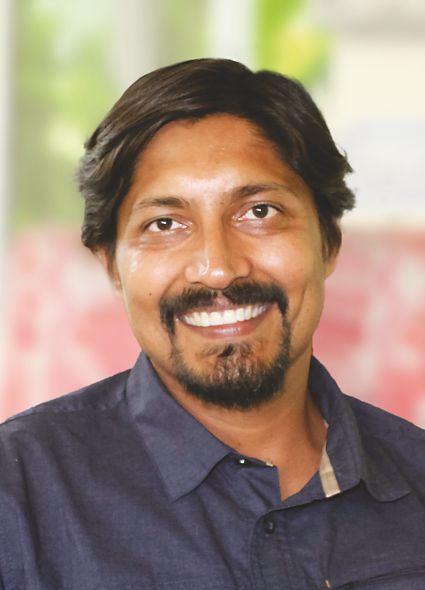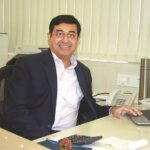
With Plans to work in the food sector, Yash Papers is committed to explore some sustainable form of packaging paper meant for bags, largely replacing environmentally damaging polybags. The company plans focus on the same in the coming three years and ideates to manufacture paper for bags with a single, large-capacity paper machine.
Established in 1981 with the production of low grammage kraft grades, Yash Papers grew to become one of the largest manufacturers of wrapping grades in India, having 39,100 MT as the present installed capacity per annum. Yash Papers practices a singular discipline, focus on specialty products and quality, and has a culture of ploughing back surpluses into additional capacity. The brand revolves around manufacturing the best wrapping grades of papers in India and make MG wrapping papers in both brown and white varieties. Currently, the company is going through a planning phase with innovative changes stored in the pipeline.
Paper Mart recently had an interview with Mr. Ved Krishna, Head of Strategy, Yash Papers, who apprised us with the on-going process at Yash Papers. Excerpts:
Paper Mart: Is there any development, either on technical or product side, in Yash Papers?
Ved Krishna: Lots have been done. We are continuously working on various new ideas driven by the core purpose, which is basically to find solutions to replace single use plastics. We are trying to work around, making a better quality bag paper. We have been working on the elasticity and the strength of the paper; we have also been looking to modify our machines for that. We are looking at numerous projects on bio plastics, taking waste and using it for different substrates on barriers and things like that. So we are activating various ideas and definitely planning to come out with a few in the coming years. We have a very good innovative team and there are lots of things in the pipeline.
PM: Any recent or planned expansion in the product capacity? Please share details.
VK: The plan is to work strategically in food packaging sector. Slowly, we are moving from base paper towards bags. Either we will make paper bags or we will make paper for bags. The plan in the coming three years is to exit every other segment and manufacture paper for bags with a single paper machine; we will expand that paper machine and shut down other two machines.
Right now, all the expansion is in the molding segment (i.e. CHUK range of tableware) including lots of value additions in the paper segment. We are expecting to move more into bags in the coming years. We have also started working on various other related technologies which will come into light in about two-three years. Those will again be bag oriented. To find out-of-the-box solutions for replacing a single use polybag is basically our whole focus. We have been working on it for 4-5 years, testing different technologies and working on them. We just had our last strategic meeting where we identified one technology, which we will be working on. My role there will be to work on that technology.
PM: If you have done any technical upgradation for productivity enhancement as well as environmental compliance, tell them separately.
VK: Environment is something we are deeply concerned about and as an industry we think there are tons of things to be done. On the water side, we are doing numerous things in terms of effluent treatment. We have put in a tertiary treatment plant and have put several solid liquid separation systems. Now, Yash is in the process of changing its entire wet washing system along with working on solid waste.
We are looking at value addition through rice husk ash, pith, and lime sludge by not just seeing them as wastes, but as something which can create more value. Our focus is absolute in terms of reducing water and energy consumption substantially. In the last three years, we have come down from 100 cubic meter of water usage to 50 cubic meters, and our target is to go under 40 cubic meters by the end of this year and eventually hit the 30 cubic meter target, which is though extremely tough to attain would be our phase-wise focus. In terms of electricity, we have come down from 1300-1400 kwh to a 1000 kwh. The plan is to again reduce it to 950 kwh this year, which is again an aggressive target.
PM: How important is it now for the pulp and paper industry to address increasing environmental challenges in terms of efficient product development and specific technological upgradation. Give your views in detail.
VK: I think both are absolutely necessary, in their respective domains of compulsions. We need to continuously look at finding these production oriented improvements and environmental technologies. They may look separate if seen from the surface of it but are essentially interrelated. All the operational efficiencies later on result in addressing environmental concerns. This apparently looks like a double-edged sword to reduce and improve the discharge simultaneously because as soon as you reduce, the discharge becomes more concentrated. That is a challenge. But the solution needs to be found here only as it may look difficult now, but reducing water consumption is a reality and is attached to long-term survival of the industry.
I think we need to also find a way to think of changing the process altogether. If you are an industry, you are harming the environment in one way or the other. You can never say it is 100 percent environment friendly. It can never be! Our team works a lot on something called bio-mimicry, which is learning from nature. Basically, when we look at nature, we see it never uses high energy. There is only one source of energy, i.e. sun. Also, whatever it grows it takes back. Being a commercial industry, you always heat, treat and beat. Whatever industry you belong to, you will always use these three steps and all three are energy consuming. The thing is how we make more of an earth friendly system. Total paradigm shift is also something we need to work on, which may be just an idea on how we can make paper for packaging. That is an idea we are working on right now.
PM: How do you rate Yash Papers’ production system performance (about technology) on environment side?
VK: I would say 50 percent; not from the technology point of view but from the intent. We need to do much better because there is a team that works hard, finding ways to do a lot. We are relatively a small company. It is not about the money, it is about the right technology. We need to do a lot more than what we are currently doing. The effort is there; hence I would say 50 percent, but the results are in mid as we are still finding the new technology and waiting to apply it as soon as possible.
PM: Anything you would like to add?
VK: I think the greatest thing in Yash Papers is that it is very different from rest of the industry. We work as a self managing team, which basically is where people take the responsibility. There is not much hierarchy. We have people from across the world here because we are trying to be sort of a place where we can innovate.



